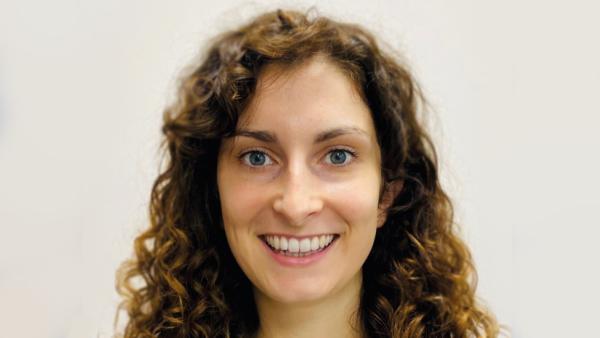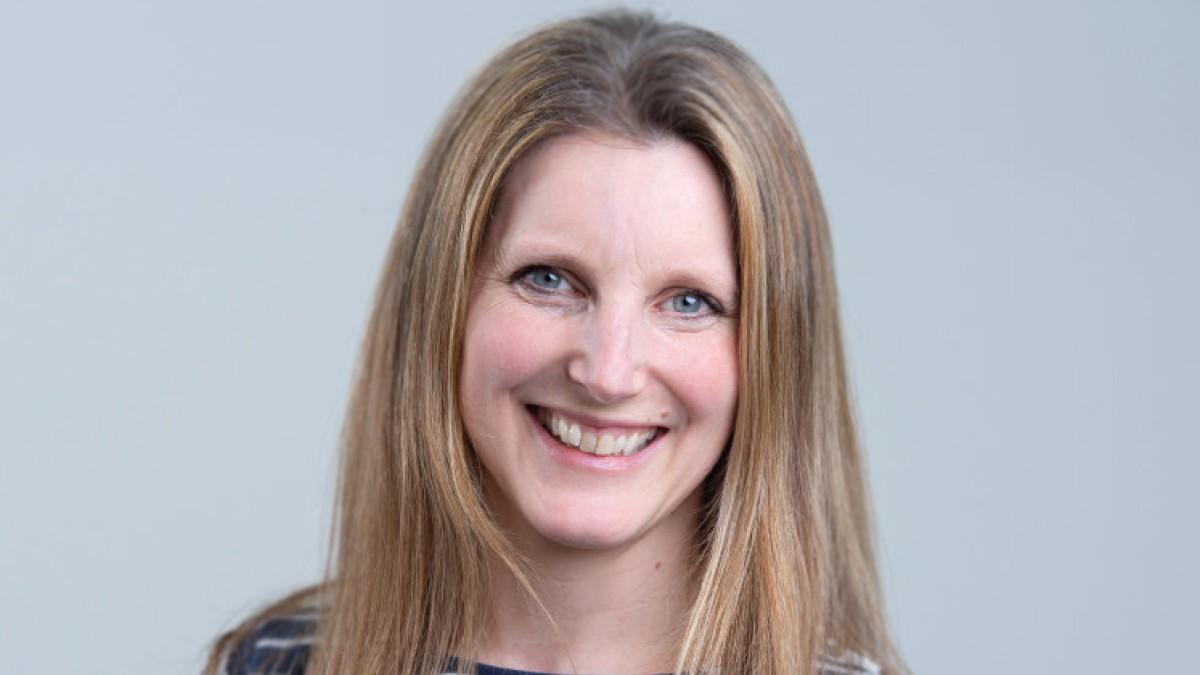As the NHS struggles to cope with rising demand and tackle Covid-19 backlogs, physiotherapy staff are still fighting to retain their rehab spaces, reports Mark Gould. The CSP is there to help
As the NHS battled Covid-19, staff grew to accept speedy, and sometimes irrevocable changes, to the way they worked and the places they worked in.
Physiotherapy services were often sacrificed as rehabilitation spaces were taken over to cope with A&E overflow or to become vaccination stations.
While our future with Covid will hopefully become less traumatic, physiotherapy services are still facing a fight to retain their space as the NHS juggles with rising demand and the challenge of coping with backlogs.
But with good organisation, communication and evidence gathering physio staff are defending their workplaces, says CSP organising officer Alice Spilsbury.
She says local stewards and safety reps in ‘pretty much every region’ are facing loss of space issues of some kind. That is underlined by a CSP survey from December in which 73 per cent of 350 physiotherapists questioned reported that they are not able to offer their patients the level of rehab they need to get well after illness or injury.
Of the 350 physios questioned said they were not able 73% to offer patients the level of rehab needed
Physiotherapists told of having to provide vital rehab in corridors and storage facilities, of amputees waiting months for rehab, stroke survivors ‘imprisoned at home with a bed and a commode’.
Alice says it’s important to have a good number of CSP stewards and reps in organisations as it really makes a difference when negotiating and campaigning against loss of space.
‘The last three years have seen NHS organisations taking space off members without following approved protocols, which means physios are not consulted about a proposal, whether it is workable, whether there are health and safety issues or whether there had been an equality impact assessment to see if it could compromise quality of care,’ Alice says.
Early last year, at a trust in the West Midlands, physio staff were told the following day that they had to move out of their gym as it was being requisitioned by A&E.
‘The gym was lost overnight without any consultation, without any appropriate new space and without any consultation on how their service was to continue,’ Alice said.
As a result, 130 physios and support staff organised a collective grievance.
‘Although the trust said that clinical needs of A&E would have to take precedence over physiotherapy, the trust has issued assurances that it would not approach loss of space issues in the same way again,’ she added.
The experience and insight gained by the members who defended this loss of space case in Birmingham also helped a team in Plymouth when it was faced with a similar challenge.
No consultation
It was in October 2021 that physios first heard, from other union colleagues, that University Hospitals Plymouth NHS Trust was moving the therapy team off site to make space while a ward was being refurbished.
‘The news came out and we were basically told “don’t plan to put up any Christmas trees” – things were going to happen in weeks – there was no planning at all,’ says Rob Davies, the CSP steward and safety rep at the trust.
The move, done without consultation would mean the team would lose a large gym, admin space and a massive loss of in- and out-patient facilities. The gym was also used by physios from other teams, speech and occupational therapists and dieticians.
Relocation of outpatient facilities could have been done off site – but Rob said it needed to be done properly. He took advice from fellow CSP stewards and reps in Birmingham who had been involved in a similar situation. They supplied Rob and his team with a template letter which they used as the backbone of their argument.
Together with physio colleague Katy Rogers, Rob also raised concerns with the Care Quality Commission and emailed all staff to organise a meeting to discuss what was happening.
‘We drafted our letter and sent it to the chief executive, chief nurse, chief operating officer, and importantly Stuart Windsor, Future Hospital director who was key to decisions about the shape of the trust,’ he says.
As not all clinicians affected were CSP members, colleagues were asked to contact the trust’s freedom to speak up guardians, an independent body which supports staff when they want to raise any concerns.
Mass meetings were organised and attended by CSP national officials. They also submitted a collective grievance and received a written response from Stuart Windsor which resulted in an online meeting where they raised further concerns.
Three weeks after the move was initially flagged up Rob was told that an alternative plan was available.
‘They realised that they didn’t have to move the therapy department and that the way they had gone about the initial proposal had not been right. These sorts of rapid changes were what happened during the Covid emergency, but the plan to move us was not in the spirit of that at all. We were told that in the future there would be a proper consultation process involving unions. It was really key that we got input from unions and via the freedom to speak up guardians.
‘The trust realised they had done things wrong and we got the ability to talk things through as adults and agree a way of going forward. Both sides were happy and the publicity with the trust has actually boosted the popularity of the gym – it’s used more than ever.’
Management buy-in
Josh Meadows, a CSP steward and safety representative in the East Midlands, has sympathy with NHS leaders who can find it challenging to satisfy competing demands for space for equally important clinical services.
But he says it’s important for CSP members and their representatives, when faced with a loss of space, to engage with key stakeholders to put together a compelling alternative plan and case for change. ‘CSP representatives are in a fantastic position to engage with staff, patient groups, infection control, quality teams and health and safety teams to support this case,’ he says.
Working with these groups can be instrumental in getting ‘buy-in’ from key management figures like the estate’s director, finance director and the chief operating officer ‘who quite often have a lot of influence on these decisions’ he adds.
When members told him they were having problems with their rehabilitation space that was cramped and unsafe, Josh took the story to the very top of the trust, which is now putting together a plan which will suit everyone.
Initially, MSK physiotherapists had their large rehabilitation space with three private rooms, eight cubicles, a large gym, waiting area and office space that had been requisitioned for storage at the start of the pandemic. The team was then moved to a much smaller space which they were having to share with the community therapy service, which they said was overcrowded and prevented either service from providing certain training, supporting students or providing optimum care.
Josh said the changes had made a ‘significant impact on staff wellbeing’.
‘Colleagues reported safety incidents and equipment concerns, concerns about patient dignity with amputee rehabilitation, and not being able to deliver the care they wanted to. Staff have been tremendously frustrated and disappointed they are working in these circumstances, and it has had an impact on the retention of staff and overall feel.
‘The move has also created inequalities in service provision for patients across the county, where other service areas have much better facilities and space,’ he said.
Josh said he raised staff concerns via local trust and partnership forums, the trust safety team was made aware of problems and a joint safety visit was organised alongside a stress survey.
He also facilitated a face-to-face meeting with concerned staff, the finance director and the chief operating officer which was held within the smaller workplace – where he said the executive team could see immediately the problems staff faced.
‘When staff gave their accounts to the executive team of what it was like to work in this environment, it helped support the case that an alternative long-term solution was vital,’ he said.
Management was persuaded and it was agreed to create a working group to come up with solutions that helped support the different teams in the area which included improving the existing workplace, whilst a longer-term solution was found. After extensive work an existing building has been identified and a capital plan agreed to change its use and move existing services into other suitable premises. When embarking on a campaign to defend a working space Josh says that it is important to work with key stakeholders who may be able to help.
‘It’s important to take time to understand why they may be for or against what your members want and the reasons for that.
This can aid in plans on how you may approach them.
‘Developing this understanding is important when trying to get the best outcomes for our members.’
Physio seen as ‘easy target’ Adam Morgan is the CSP senior negotiating officer for Wales, a full-time trade union officer working with a network of Welsh NHS based stewards and safety representatives.
He feels physiotherapy is singled out as a particular target when it comes to losing space. ‘Rehabilitation was not seen as a priority during the pandemic. It was something seen as ‘nice to have rather than need to have’. It’s an easy target as a stroke rehab ward can easily be converted back to a clinical ward.’
Across Wales, Adam says there have been more than 20 separate cases where physio staff have either lost rehabilitation space or space for admin and meal breaks. ‘There is not one main reason for loss of space, each case is individual and has its own nuances and reasons.’
His office offers support, training, education and advice to stewards and safety reps where they face local issues. He can take part in direct negotiations himself where there are complex issues.
Adam also sits on the Welsh Partnership Forum which brings together NHS Wales, trade unions and the Welsh Government where problems, such as loss of space, can be highlighted.
As a result of Adam and the CSP raising space issues, including speaking to the Senedd health committee, the Welsh health and social care minister put out a statement to all health and social care board chief executives in June last year, spelling out that space for rehab should not be used for other reasons.
In the light of that intervention Adam feels that managers are getting the message that physio staff won’t simply roll over and accept loss of space.
We are being proactive, making sure that stewards are challenging ideas before they become facts, because once you have lost a service it’s hard to get it back.
Noah’s Ark Jenny Lavington is a paediatric oncology physiotherapist and a CSP steward at the Noah’s Ark Children’s Hospital for Wales in Cardiff. At the start of the pandemic the hospital’s physiotherapy outpatient department was converted into a paediatric trauma clinic. This included the gym, clinic rooms, reception and waiting room area.
This August, after two years of arguing their case, the paediatric trauma clinic has been re-located and physio staff now have access to the outpatient department again.
Jenny said the gym area was also used for inpatient rehab space. As there was no other space to store and use equipment physios also lost access to the majority of their equipment such as plinths, benches and games. They were also unable to use the hydrotherapy pool.
‘As a steward I continually flagged this as an area of concern with the Welsh CSP rep’s forum and with the leadership team in the partnership meetings. Our physiotherapy manager took this issue as high as possible to the clinical board directors,’ she said.
Jenny encouraged staff to complete risk management forms to highlight how the loss of rehab space was effecting patient care, safety and dignity.
‘For example, a session using our mobile steps unit was carried out in a public corridor due to the lack of space,’ she said.
The hospital’s physiotherapy manager was a key player in regaining the space.
‘She worked closely in partnership with myself as the CSP rep and with our team leads to reassure us this was being flagged at clinical board level. I believe our health board should have recognised the importance of physiotherapy input in helping patient flow/discharge and avoiding admissions and a solution should have been reached much faster.’
Professional help
Where physio staff feel under potential attack, they can seek support from the CSP’s local teams who are on hand in your region if you need help with loss of space issues.
The teams are made up of an organising officer, a campaigns and regional engagement officer, a senior negotiating officer and a professional adviser.
The CSP website also contains information to help members set up campaigns and provides letter templates to use to contact their chief executive and raise awareness with local MPs and councillors.
As a first step CSP professional adviser Jackie Lidgard advises members to gather data and outcome measures that show the value of your service.
‘We ask people to build a picture and a story about that particular space, what is happening in their every day and then layering
it up – looking at environmental information – where the space is and what is unique and beneficial about it, whether it is big enough to accommodate any special rehab equipment, space for enough staff who could not go anywhere else. Can you have multiple patients in the space, if it is very close to the ward – is it convenient and easy to use?’
Jackie says local teams are regularly approached by members worried about loss of space since Covid.
‘The most recent two queries are from people who are being proactive, which is good. They are thinking they might lose space so they are wanting to protect it by collecting data and building a picture of how it fits into and benefits that service,’ Jackie says.
‘If there is a challenge, they already have the statistics and the evidence to show how it helps the patient population. The difficulty comes when your space is challenged and you don’t have any evidence.’
Local CSP teams can also put members in touch with a network of professional advisers across the country and with physio staff who have fought similar battles.
The teams also look at use of space in context of wider national guidelines and workstreams – ‘thinking of the bigger picture’.
Jackie says some guidelines support having specific rehab spaces, but others look at bringing services closer to the community and looking at how it would benefit the wider local population.
‘What we can do is help around any service redesign or development to help make sure those spaces are being used to best advantage.’
In a recent case where a team wanted to retain a space, she said analysis showed that it wasn’t being used for the whole week.
We advised them to put together a case for joint use which was much more efficient. If both had been trying to get exclusive access to the same space, potentially they would have both lost out.’
Resources
Access CSP resources to help protect your space
Get CSP staff support in your local area
Think about becoming a steward or H&S rep
Contact your CSP steward and health & safety rep
For more detailed advice on influencing download the CSP’s influencing toolkit
Number of subscribers: 1








































